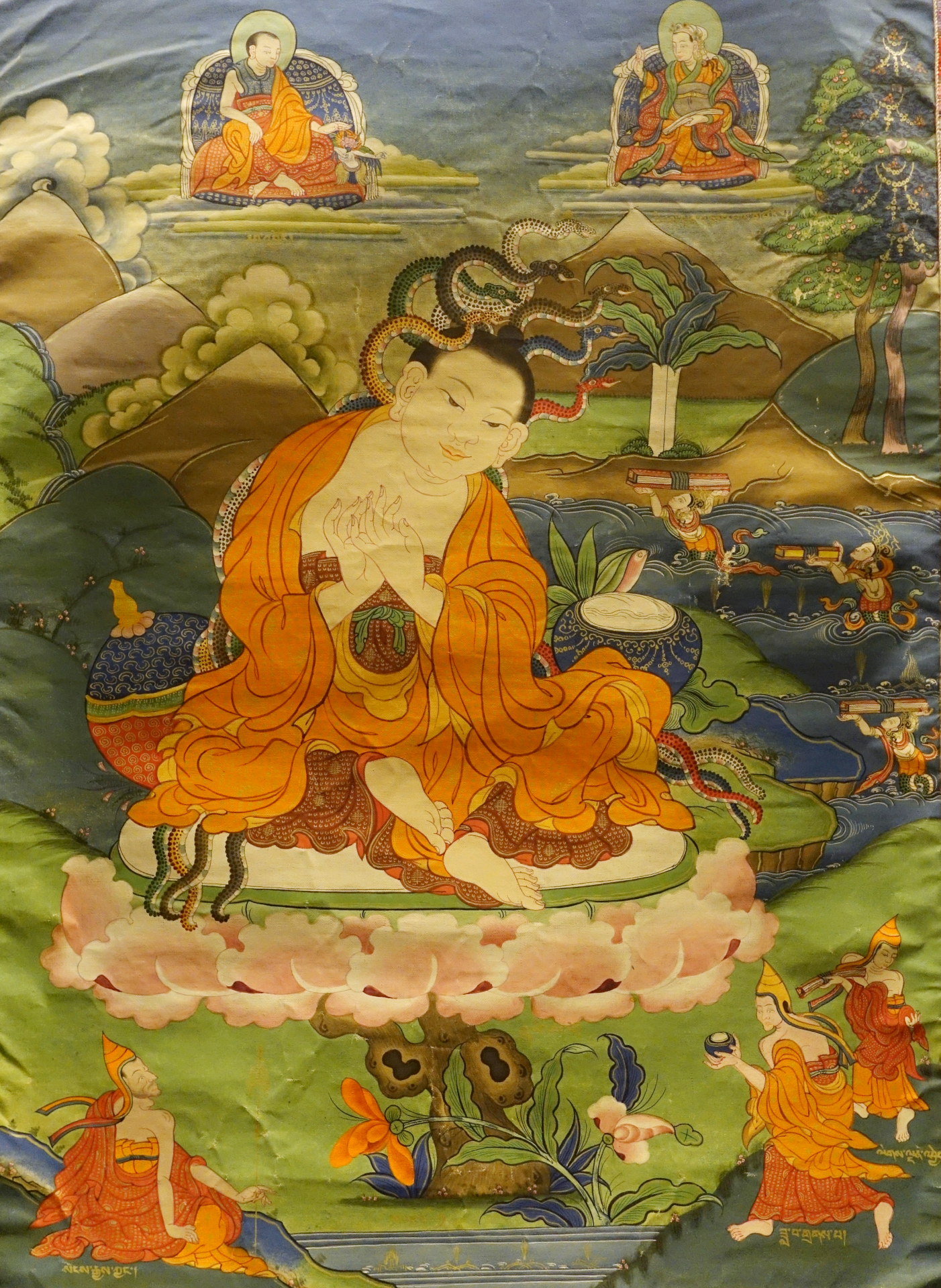Nāgārjuna, active 2nd century
Enlarge text Shrink text
Information for Authority record
Name (Hebrew)
נאגארג'ונה, המאה ה-2
Name (Latin)
Nāgārjuna, active 2nd century
Name (Cyrilic)
Нагараджуна, 2-й век
Other forms of name
Nāgārjuna, 2nd cent
Lung-Meng
Longmeng, active 2nd century
Ryūju, active 2nd century
Lu-chu, Pan-kung-pʻa-pa, active 2nd century
Luzhu, Bangongpaba, active 2nd century
Lung-shu, active 2nd century
Longsheng, active 2nd century
Lung-sheng, active 2nd century
Longshu, active 2nd century
Lung-Cheng, active 2nd century
Lung-hu, active 2nd century
Yongsu, active 2nd century
Ācārya Nāgārjuna, active 2nd century
Ārya Nāgārjuna, active 2nd century
ʼPhags-pa Klu-sgrub, active 2nd century
Klu-sgrub, ʼPhags-pa, active 2nd century
Slob-dpon Klu-sgrub, active 2nd century
Nagardzhuna, active 2nd century
Nākhānchun, active 2nd century
Nākhārachun, active 2nd century
Nākhānrachun, active 2nd century
Long Thọ Đại Sĩ, active 2nd century
Bồ-Tát Long-Thọ, active 2nd century
Nagarzhuna, active 2nd century
Lu-Trub, active 2nd century
נגרג'ונה, המאה ה-2
נגרג'ונה, 2nd. cent
Field of activity
Buddhism
Wit's Triumvirate, or the philosopher
Occupation
Buddhist priests
Associated Language
santib
Gender
male
Other Identifiers
Sources of Information
- Saigusa M. Chūron, 1984:pref. (龍樹 = Ryūju)
- אי-עמדה פילוסופית כמעשה פילוסופי בר-משמעות, תשע"ב 2011:
- Shih yü ku shih, 1983:t.p. (班贡帕巴・魯珠 = Pan-kung-pʻa-pa Lu-chu) p. 167 (variant names: 龙猛 = Lung-meng; 龙树 = Lung-shu; 龙胜 = Lung-sheng; Lung-hu)
- Tongbong. TaesŭngPulgyoŭi abŏji Yongsu, 1984:t.p. (용수 = Yongsu)
- Ācārya Nāgārjunapraṇītaḥ Dharmasan̄grahaḥ, 1988:t.p. (Ācārya Nāgārjuna... ; ʻPhags-pa Klu-sgrub) p. 1, 1st gr. (Slob-dpon Klu-sgrub)
- Androsov, V.P. Nagardzhuna i ego uchenie, 1990.
- Rattanāwalī, 1991:p. 3 (Phra Nākhānchun)
- ĐạI trí độ luận, 1992- :v. 2, t.p. (Long Thọ Đại Sĩ; Nàgàrjuna)
- Trung quán tâm ngộ luận, 1995:t.p. (Bồ tát Long Thọ-Nàgàrjuna)
- Dundad u̇zliĭn ukhaany chuulgan, 2002:t.p. (Nagarzhuna)
- Dundazh u̇zliĭn ukhaany chuulgan, 2002:t.p. (Nagarzhuna)
- Strand of dharma jewels, 1992:t.p. (Ārya Nāgārjuna)
- She-rab-dong-bu, 2006:t.p. (Lu-Trub (Nagarjuna)) jkt. (flourished in the 4th century of the Buddhist era (ca. 100 B.C. [sic])
1 / 6
Wikipedia description:
Nāgārjuna (Sanskrit: नागार्जुन, Nāgārjuna; c. 150 – c. 250 CE) was an Indian monk and Mahāyāna Buddhist philosopher of the Madhyamaka (Centrism, Middle Way) school. He is widely considered one of the most important Buddhist philosophers. Nāgārjuna is widely considered to be the founder of the Madhyamaka school of Buddhist philosophy and a defender of the Mahāyāna movement. His Mūlamadhyamakakārikā (Root Verses on Madhyamaka, MMK) is the most important text on the Madhyamaka philosophy of emptiness. The MMK inspired a large number of commentaries in Sanskrit, Chinese, Tibetan, Korean and Japanese and continues to be studied today.
Read more on Wikipedia >
 Personality
Personality





